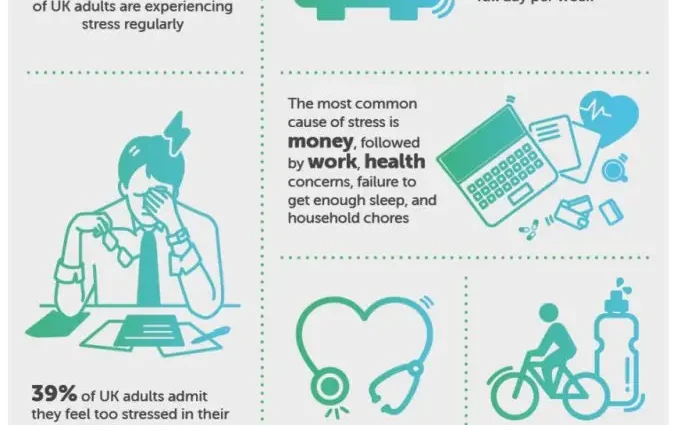Contents
Short-term stress is normal and natural. Problems begin when stress continues for a long time and becomes chronic. Over time, it erodes our physical and mental health. Psychotherapist Douglas Kong tells how to deal with it.
When we talk about managing stress and striving for balance, we don’t mean a balance between stress and relaxation. We are talking about balancing the work of various parts of the brain – the most ancient, “animal” (it is called the brain of reptiles) and the most developed and perfect (the so-called “human” part of the brain).
To think creatively and perform intellectual work, all parts of the brain must be fully involved. By achieving this balance, we will be able to realize our full potential.
1. Learn to practice mindfulness
The state of mindfulness is mindfulness combined with relaxation. This is usually achieved through deep breathing. Traditional relaxation techniques, breathing exercises, various types of meditation, biofeedback, all of these methods serve the same purpose: to calm an overexcited sympathetic nervous system.
When you are tense, take a short break and look around, pay attention to everything that surrounds you, down to the smallest detail.
With deep relaxation, you can fall asleep, but mindfulness implies relaxation, which does not interfere with active activity, in this state we control ourselves better and are able to do more.
2. Constantly remind yourself that you are safe.
The symptoms of stress can be relieved with simple breathing exercises, but it is also important to tune in to the issues that are bothering you. Most of them can be solved by looking at the situation from a different angle or by taking concrete measures. To clarify thoughts, it is useful to discuss with someone what is happening, it is better if it is a professional psychologist-consultant.
3. Take care of your body
If you are constantly pressed for time and need to work under stressful conditions, do breathing exercises while focusing on the sensations in your body. Pull yourself together and decide what needs to be done. Focus on that, relax and stop worrying about everything else. You will surely feel better.
4. Take a break
If the job causes constant stress (especially when you have to compete with someone), put everything aside at some point. Take a close look at what you are doing. Breathe deeply, focus. Soon a deeper understanding of what is happening will come to you and new ideas will appear. Even in a situation of intense competition, thoughtful actions will be much more effective than a spontaneous and thoughtless reaction to stress.
5. Spend time with friends and family
Connecting with people who are important to you and to whom you are important helps relieve stress. Don’t forget to meet up with friends and loved ones to have a good time, and in difficult times to support each other. When you have a “support group” you can rely on, it’s much easier to overcome and control pressure anxiety.
Not everyone is able to work long and hard. Pauses help you recharge and increase productivity
If your “support group” itself causes you stress, you should consult with a therapist or family psychologist.
6. Appreciate the little things
When you are tense, take a short break and look around, try to pay attention to everything that surrounds you, down to the smallest detail. Try to find beauty in the surrounding objects, some reason to experience amazement and admiration. Do not forget to relax sometimes: drink a glass of wine, listen to pleasant music, spend time with friends. By doing this consciously, we reboot the body and psyche.
7. Listen to what you say to yourself
What do we say to ourselves in different situations and circumstances, meeting certain people? It largely depends on the perception of the world. Are we constantly indoctrinating ourselves with negative beliefs or bullying ourselves? If you notice this in yourself, try to turn negative statements into positive ones.
Connecting with people who are important to you and to whom you are important helps relieve stress.
In this case, do not deceive yourself, but try to be as optimistic as possible. If you can’t do this on your own, contact a therapist to correct negative thought patterns.
8. Take frequent breaks
Preferably once an hour or once every half an hour. Not all of us are able to work long and continuously intensively. As already mentioned, pauses help to “reboot” and increase productivity. As a result, we work more efficiently because stress does not interfere with us.
During the break, it is desirable to be in a state of awareness and be attentive to everything that surrounds. This will help you get out of the vicious circle of stress and regain control over yourself and your body. After the break is over, your prefrontal cortex (responsible for willpower and goal-directed action) will be fully engaged and you will be ready for creative work.
About the Developer
Douglas Kong – Psychiatrist and psychotherapist with 24 years of experience.










